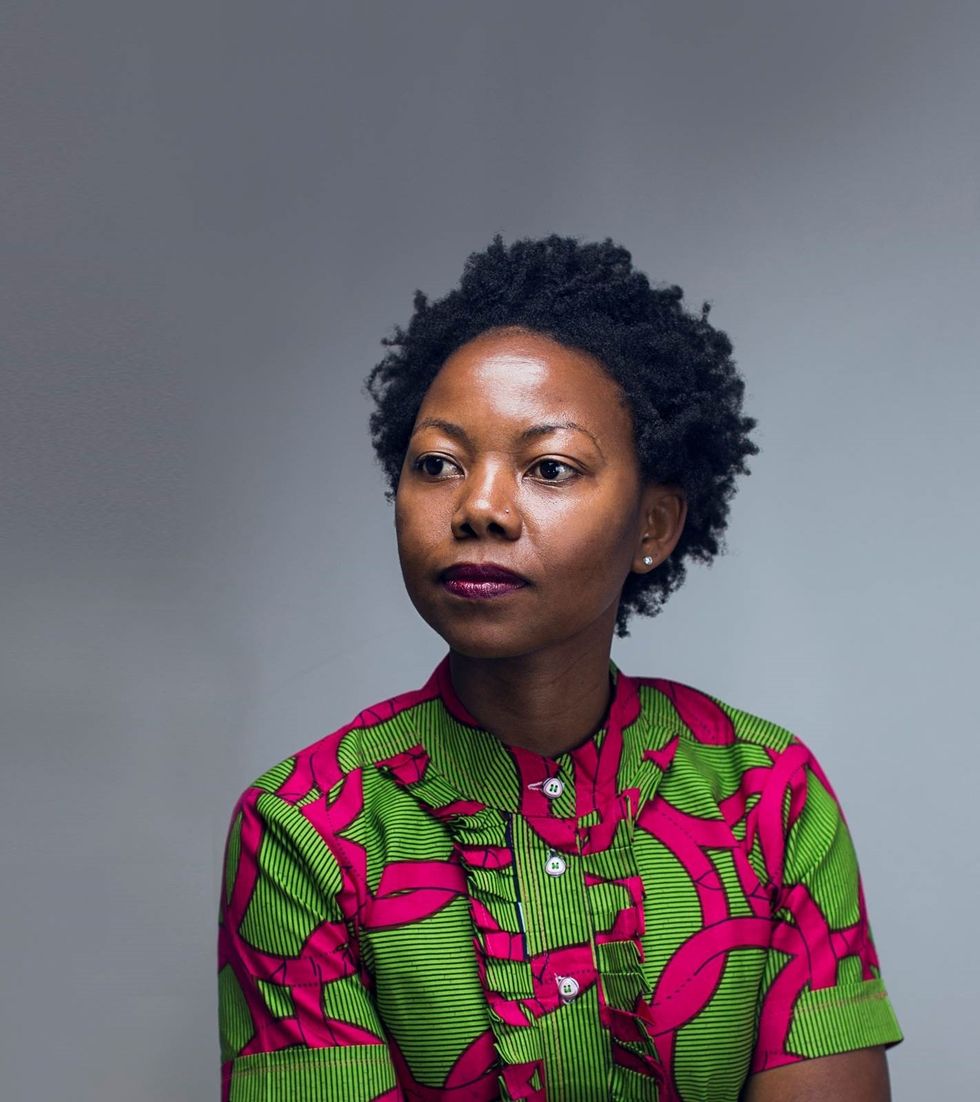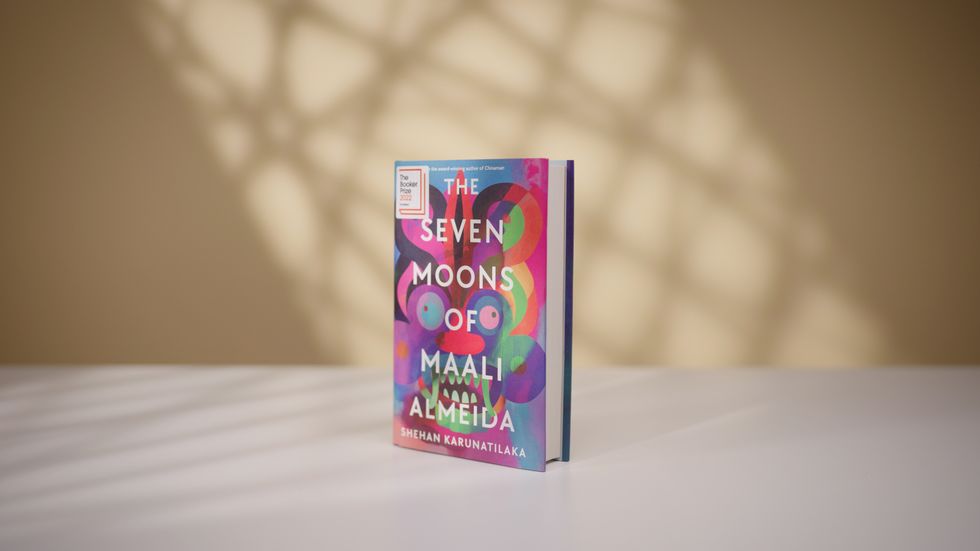Kerri-Ann Roper
Sep 06, 2022

Treacle Walker by Alan Garner has been shortlisted for the 2022 Booker Prize (PA)
British author Alan Garner has become the oldest writer to be shortlisted for the Booker Prize.
Garner, who was born in Cheshire and grew up in Alderley Edge, will celebrate his 88th birthday on the night of the award ceremony next month and has made the shortlist with his book Treacle Walker.
The writer, known for his children’s fantasy works and retellings of British folk tales, has previously said that Treacle Walker took “almost exactly eight years” from the initial idea to the final book, a fable which tells the story of young boy who strikes up an “unlikely friendship with an enigmatic, wandering healer”.

After his book was longlisted for the prestigious literary prize, he said: “Age, in itself, is irrelevant. However, as with all skills, an apprenticeship has to be served, through practice and experience.”
Also featured on this year’s six-strong shortlist is Claire Keegan’s Small Things Like These, which, at 116 pages, is the shortest book in terms of pages in the prize’s history.
The shortest to win was the 1979, 132-page title Offshore by Penelope Fitzgerald, with the prize organisers also adding that Treacle Walker is shorter by word count.
Keegan, who was brought up on a farm in Ireland, published her first volume of short stories, Antarctica, in 1999 and it went on to win the Rooney Prize for Irish Literature.
Her other acclaimed works include Foster and Walk The Blue Fields.
The shortlisted authors represent five nationalities and four continents, with an equal split of men and women featured.

Zimbabwean author NoViolet Bulawayo, who was born Elizabeth Zandile Tshele, makes the shortlist for the second time, having previously been shortlisted for her debut book, We Need New Names, in 2013.
This year her political satire, Glory, is being recognised and the author told the official Booker website previously, when asked about writing the novel, which is set in the animal kingdom and based on recent events in Zimbabwe: “Animals gave me the distance from a public drama that was often unfolding and changing shape as I was writing it (first as a work of non-fiction), and that understandably attracted so much attention it felt I was in a kind of weird competition with different commentators.”
She added: “I must say the mind-blowing absurdity of Zimbabwe’s politics also made the choice the right fit, certainly the terms of reference by my frustrated countryfolk on social media suggested the same and influenced some of my choices.”
Also on the shortlist, chosen by a judging panel chaired by cultural historian, writer and broadcaster Neil MacGregor, is American author Percival Everett for The Trees, which is described as combining “an unnerving murder mystery with a powerful condemnation of racism and police violence”.
In 2020, Everett was a Pulitzer Prize finalist with his novel Telephone.

Sri Lankan author Shehan Karunatilaka makes the list with his second novel, The Seven Moons Of Maali Almeida, a “rip-roaring epic” which is a “searing, mordantly funny satire set amid the murderous mayhem of a Sri Lanka beset by civil war”.
He told the Booker website of the book: “I began thinking about it in 2009, after the end of our civil war, when there was a raging debate over how many civilians died and whose fault it was.
“A ghost story where the dead could offer their perspective seemed a bizarre enough idea to pursue, but I wasn’t brave enough to write about the present, so I went back 20 years, to the dark days of 1989.”
Former lawyer turned author Elizabeth Strout makes the list with her novel Oh William!, which sees her return to her heroine Lucy Barton in a story about “love, loss, and the family secrets that can erupt and bewilder us at any time”.
American Strout will be familiar to audiences far and wide, having written Olive Kitteridge in 2008, which went on to win the 2009 Pulitzer Prize for Fiction and was also adapted into the award-winning TV series featuring Frances McDormand in the title role.

Judging chairman MacGregor said of the 2022 shortlist: “These six books we believe speak powerfully about important things.
“Set in different places at different times, they are all about events that in some measure happen everywhere, and concern us all. Each written in English, they demonstrate what an abundance of Englishes there are, how many distinct worlds, real and imaginary, exist in that simple-seeming space, the Anglosphere.
“Two – Oh, William! and Treacle Walker – are about the inner life, as a young boy and a middle-aged woman, in their particular ways, come to a new understanding of who they are and what they might become.
“The other four books address long national histories of cruelty and injustice, in Sri Lanka and Ireland, Zimbabwe and the United States, and in each case the enduring historical tensions provide the dilemmas in which the characters, like their societies, are put on the rack.”
He added: “Why did we choose these six? In every one, the author uses language not only to tell us what happens, but to create a world which we, outsiders, can enter and inhabit – and not merely by using words from local languages or dialects.
“NoViolet Bulawayo’s incantatory repetitions induct us all into a Zimbabwean community of memory and expectation, just as Alan Garner’s shamanic obliquities conjure a realm that reason alone could never access.
“Percival Everett and Shehan Karunatilaka spin fantastical verbal webs of Gothic horror – and humour – that could not be further removed from the hypnotic, hallucinatory clarity of Claire Keegan’s and Elizabeth Strout’s pared-down prose.
“Most important, all affirm the importance and the power of finding and sharing the truth.”
The winner will be revealed on October 17 at the Roundhouse – in person for the first time since 2019 – and will receive £50,000.
The 2021 Booker Prize for Fiction was won by Damon Galgut with The Promise.
Top 100
The Conversation (0)













